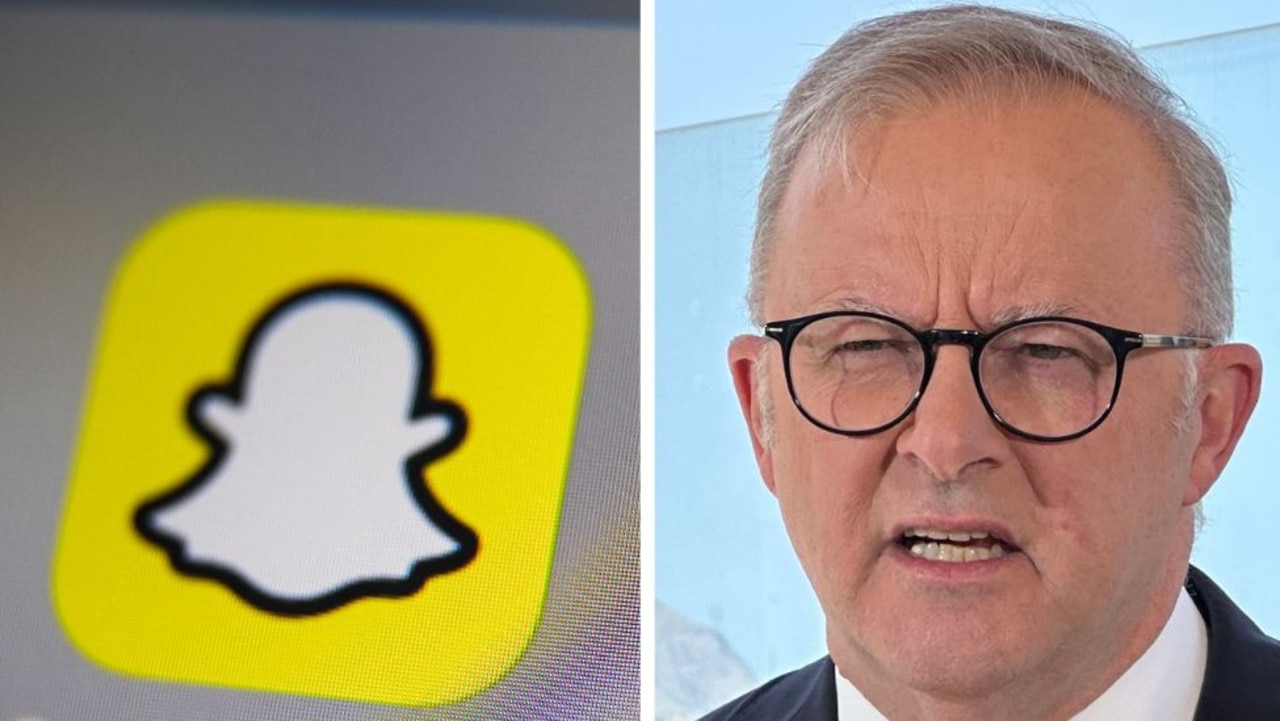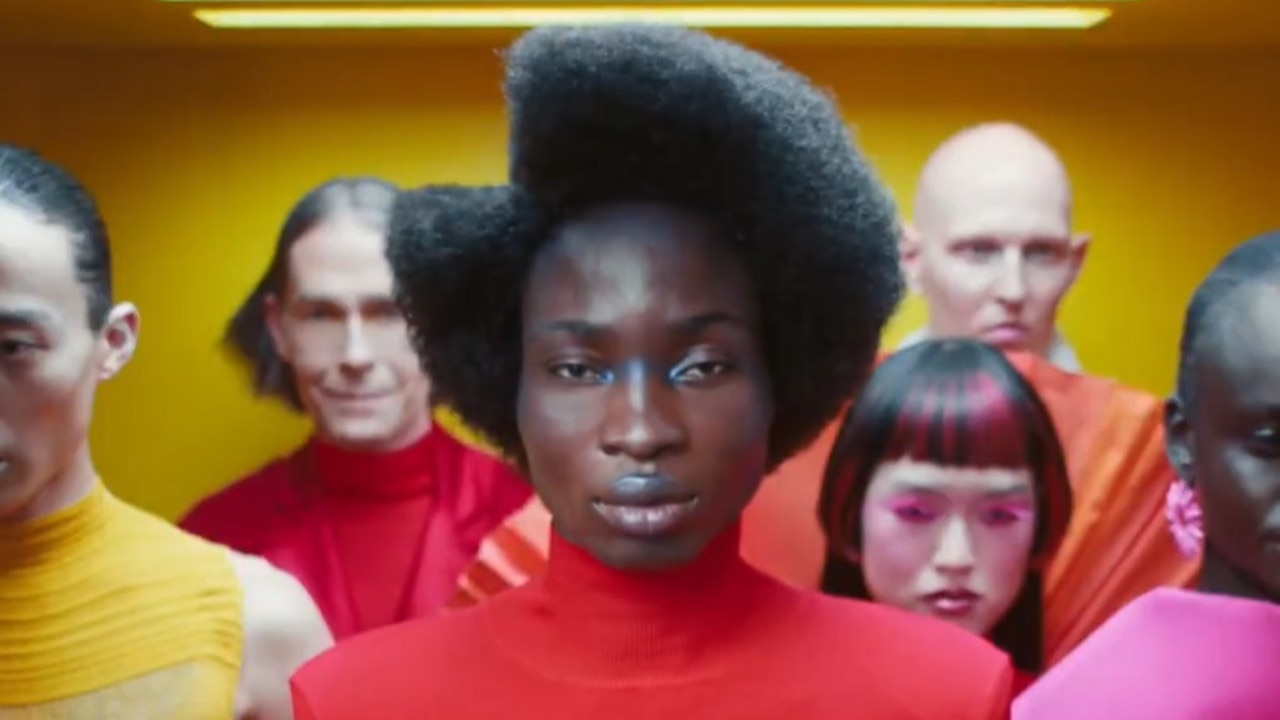Sad truth behind viral TikTok video viewed 47 million times
Aussie comedian Stephanie Broadbridge was paid $200 for a joke video. When it was viewed by 47 million people on TikTok something awful happened.

COMMENT
It was a Sunday morning, I’m a stand-up comedian and I was booked for an unusual gig. I would be sitting opposite a male comedian as we read dad jokes from the internet to each other and tried not to laugh. If we did laugh, we had to take a shot of vodka.
It was early in the morning and I’m allergic to alcohol so I was pretty motivated to win the challenge.
I won 10-1.
The challenge was filmed and turned into short clips for the relatively small Aussie TikTok account YeahMadTV. I was paid $200 and I assumed the video content would disappear into social media land like the billions of other comedy videos that no one ever sees. But that’s not what happened.
The clips went viral. One clip currently has over 47 million views and counting.
The joke? What do you call a dog that can do magic? A Labra-cadabrador.
Why was it so popular? Because people hated me and left vicious, sexist comments to let me know exactly how much. The more they commented, the more views the video received.
When the clip was posted, the important information that I was a performer in a ‘try not to laugh challenge’ wasn’t included. Instead, it was captioned “Best dog joke ever written’ so when I didn’t laugh at the joke, I just looked mean.
The commentary seemed to be that how dare I, a woman, not laugh at the funny man’s joke (not his joke, a joke off the internet). I must be a Karen, a feminist, a cat lady, a [redacted] who doesn’t have a sense of humour. The few people in the comments who tried to stick up for me by explaining it was a challenge, were also attacked.

I contacted YeahMadTV and they removed some of the nastiest comments and put in the comments that it was the ‘try not to laugh’ challenge but it didn’t stop there. The video developed a life of its own.
One anonymous account reposted the clip on 9gag, a social media platform that allows users to upload and share content from other social media sites. It was shared under the caption ‘She has no sense of Humour’. The thousands of comments on 9gag, that I can’t delete, are so disgusting that I couldn’t get through them.

Once I realised YeahMadTV had tagged me, I untagged myself immediately but the trolls still found me.
They wrote negative comments on every stand-up comedy clip I had on TikTok and Instagram.
I was running ads for my live stand up shows at the Melbourne International Comedy Festival and those ads all had to be removed because of the trolling.
It is very hard to be funny when every time I tell a joke on stage, I can picture these vile comments screaming at me from the audience.
On the final night of my Melbourne Comedy Festival run I broke down. I left the stage ten minutes into my show and burst into tears. I have been performing comedy almost every single night for seven years and this has never happened to me before. I am professional and reliable. I don’t cancel. I built my reputation on being ‘the chick that doesn’t cancel’.

Yes, of course, men get negative comments online too, but this was different. The language was gendered. It was violent. It was threatening. The attacks were intended to silence me, intimidate me and humiliate me, because I had committed a mortal sin of womanhood, not laughing at a man’s crappy joke. I know I’m the least objective person in this situation but it’s hard to deny the lashings of misogyny.
Sure, I could delete social media. If I stop putting myself out there, then people will stop trolling me. But I am a stand-up comedian. This is my job. Part of that job is promoting myself online and I deserve to feel safe at work.
It’s not just the arts where a strong social media presence is a requirement. Social media is an integral part of most careers. Nearly every employer checks you out online before hiring you, so to say “just ignore it” is completely unreasonable.
That’s asking me to ignore the cheapest and most efficient way to promote myself. “Don’t worry about it” or “don’t post things if you don’t want to get attacked” does not resolve the issue. I am worried about it. It’s disgusting, it’s sexist and it’s ruining my career.
Given social media is an important part of our work life and women are trolled more than men how is that workplace equality? Why are we accepting trolling as a consequence of being online?
The number of women in comedy I have spoken to that have received similar treatment online is truly horrifying. Some have quit comedy, some have been seeking mental health treatment ever since, some just put up with it as part of the deal.
I don’t have a solution, but I would suggest that next time you are tempted to write a mean comment on a random clip for no other reason except that you’re bored, maybe don’t.
Stephanie Broadbridge is a stand-up comedian.
Originally published as Sad truth behind viral TikTok video viewed 47 million times




